Feature
Rethinking Your Personal Library: An Introduction To Quantum And Antilibrary
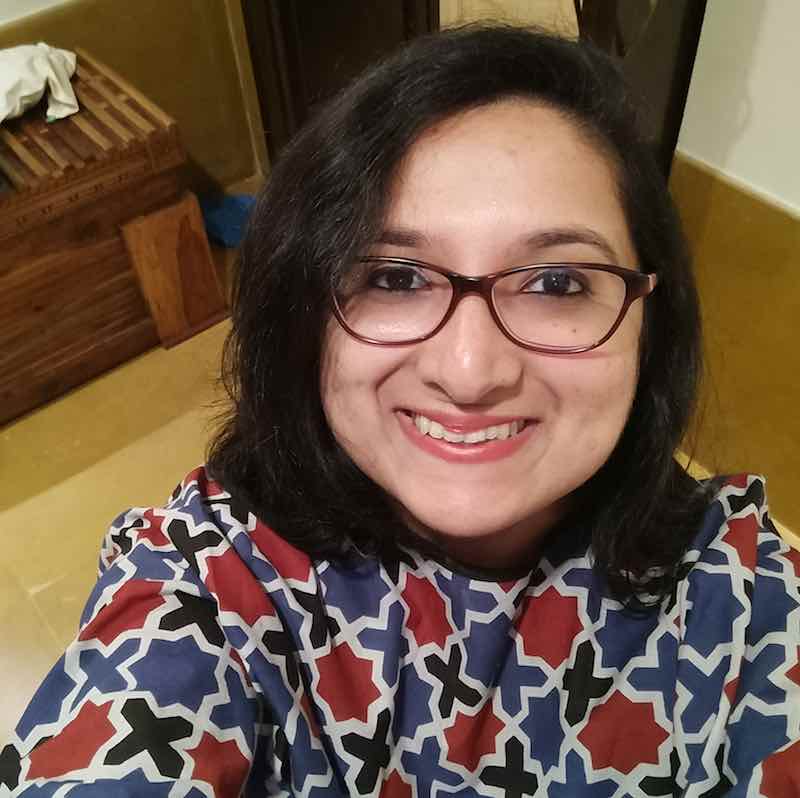
Phorum Dalal
January 23, 2018
Those were simpler times, growing up in the 90s. You had a library that allowed you to borrow books; a low-maintenance escape mechanism that fed your mind with imaginative ammunition.
Some of you may have chosen to slowly build up your own personal library because sometimes it isn’t enough to just read a book; sometimes you need to be able to look at it every day to remind you of what you learned from it. These are books that you keep returning to for the comfort of knowing the plot and characters, relating to the story and wanting to read again.
And then there are those which you aspire to read or want to read because you know you will enjoy them or because you know they will fill a gap in your life. Often, these are books which you’ve been told you must read.
If you have a personal library, you can probably identify with both these scenarios but, fret not, you are not alone. In fact, they can be explained through the intriguing concepts of Antilibrary and Quantum library.
The Antilibrary
For any bibliophile, the question, “Have you read all the books you own?” is a nightmare to answer. How do you possibly show off your collection while admitting you have never read most of them?
In How to Travel with a Salmon & Other Essays, late scholar Umberto Eco expressed his dissatisfaction with this question. Eco’s tongue-in-cheek response to it would be “No, these are the ones I have to read by the end of the month. I keep the others in my office.”
In his book The Black Swan, Nassim Nicholas Taleb wrote:
“The writer Umberto Eco belongs to that small class of scholars who are encyclopaedic, insightful, and non-dull. He is the owner of a large personal library and separates visitors into two categories: those who react with “Wow! Signore professore dottore Eco, what a library you have! How many of these books have you read?” and the others — a very small minority — who get the point that a private library is not an ego-boosting appendage but a research tool. Read books are far less valuable than unread ones. The library should contain as much of what you do not know as your financial means, mortgage rates, and the currently tight real-estate market will allow you to put there. You will accumulate more knowledge and more books as you grow older, and the growing number of unread books on the shelves will look at you menacingly. Indeed, the more you know, the larger the rows of unread books. Let us call this collection of unread books an anti-library.”
The Antilibrary is the manifestation of your practical mind that needs to be challenged, that needs to graze new pastures and gain new insights to utilise its potential. When I look at the unread titles in my library, I am comforted by the reassurance that I have something new to read.
The Antilibrary can be a collector’s pride and joy, giving her something to boast about while helping her work her brain to the fullest. For Bengaluru-based columnist and journalist Aakar Patel, the presence of unread books is important. “Though I have more or less stopped buying new ones, even if I live another 25 years I will not be able to finish what I own. That is fine. The purpose is not always to read everything. I enjoy possessing them, and while this will appear strange to some, others will identify with me.”
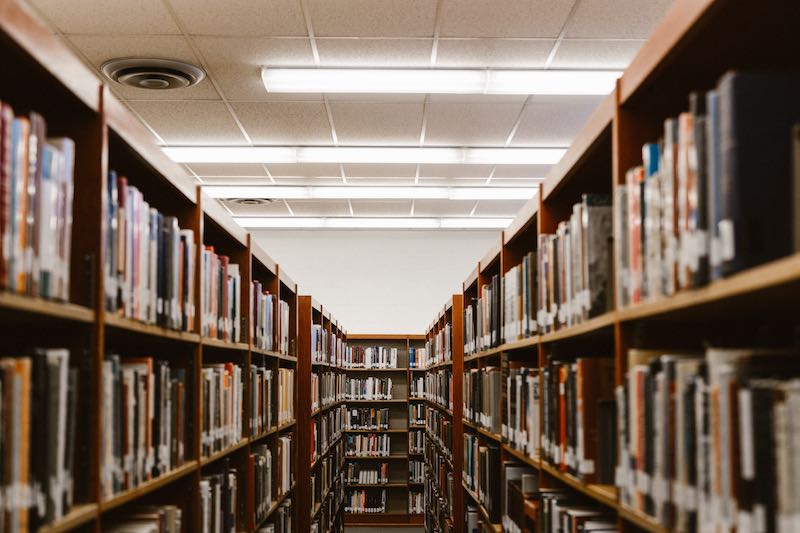
The Quantum Library
Say hello to your Quantum Library: books in your collection that you revisit because each time you do, you learn something new. It is like asking an old friend for advice, knowing you will not leave disheartened.
These are books you may have annotated or read too early in life. Your take away when you read them at 16 would be different from when you read them at 24, after you’ve gained a little experience. Set your mind at ease because a Quantum Library need not consist of only non-fiction books. After all, as a reader, you know how much there is to learn from fiction.
I have read Lust for Life by Irving Stone five times, and A Moveable Feast by Hemingway several times. They give me the comfort of the known word, I know they are good books and I know they will keep me warm on a rainy night. I know the books will say just what I want to read. By the time I reach the last page, I am more enriched than the last time I read them. They leave me with revelations I missed the last time, and a fresh perspective that makes me love the books more; ensuring I keep returning, and the fling is no longer just a fling.
In our conversation with Patel, we learn that he also has a few books that he turns to time and again. “I used to reread Wodehouse a lot as a young man. In the last few years, I have reread two authors, one for language and the other for the material. Jeffrey Bernard wrote a weekly column for The Spectator called Low Life in which he described his time as a drunk gambler. The second writer is Khaled Ahmed of Lahore, who I have read for 20 years, and is a very great man,” says Patel.
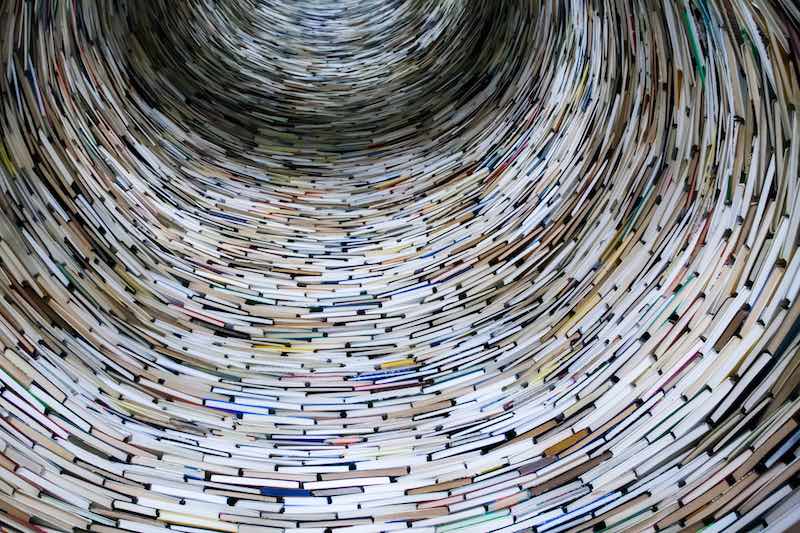
Double Timing
Children’s author, Lubaina Bandukwala has one simple rule: buy a book that is worth re-reading. Her collection ranges from children’s books to mysteries and coffee table books on Mumbai.
“I love stocking books! At any given time, I have at least five that I haven’t read. I do eventually read them, not always fully though. I am quite ruthless that way and will abandon a book if the first couple of chapters don’t work for me. Then there are others that I love and read over and over again. I always find something I missed before. I think this is directly related to different stages in my life or some situation that I am in which connects to an aspect of the book which I haven’t discovered before. Or, because I have more exposure to something, I now get what the author is trying to say. Earlier, for me, Love in the Time of Cholera was more about love, now I relate to things about growing old.”
Her Antilibrary is a bunch of classics. “I know I should read them, but haven’t gotten down to it. For example, I felt I must read Heart of Darkness, some classical Panchatantra and Arabian Nights because most literature has references to folk tales and myth but I got bored,” she says.
Lubaina is not alone in actively stocking books both in her Quantum and Antilibrary. I too plead guilty of the same. In fact, I take it one step further as when I travel, I carry one read book and one unread book, because it offers me a choice; I think of is as my own little portable Quantum and Antilibrary. It is crucial to know that I can be whisked away into another world, one known and one brand new, in case of long delays and unexpected hiccups.

Now take a step back, think of your personal library, and you will realise you already have both an Antilibrary and a Quantum Library. They are an essential part of any book collector’s soul. The next time someone tells you not to buy a new book till you’ve finished reading the un-read ones in your library, remember the Antilibrary and buy it anyway. Similarly, if a well-meaning relative asks you to donate a book which you’ve read many times, remember that this is a part of your Quantum Library and has played an important role in making you who you are.
Look at your stack of quantum and antilibrary books, they will tell you about your past and your present. Look at them again, and they will chart out your future.
Do you have an extensive Antilibrary or Quantum Library? Tell us about your collection in the comments below.
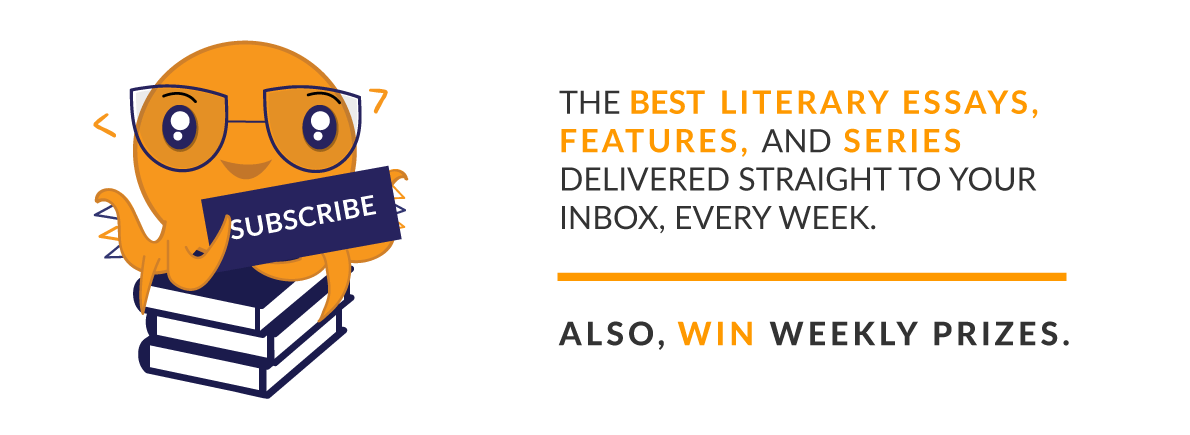

Phorum Dalal
Phorum Dalal is a Mumbai-based food, travel and lifestyle journalist.

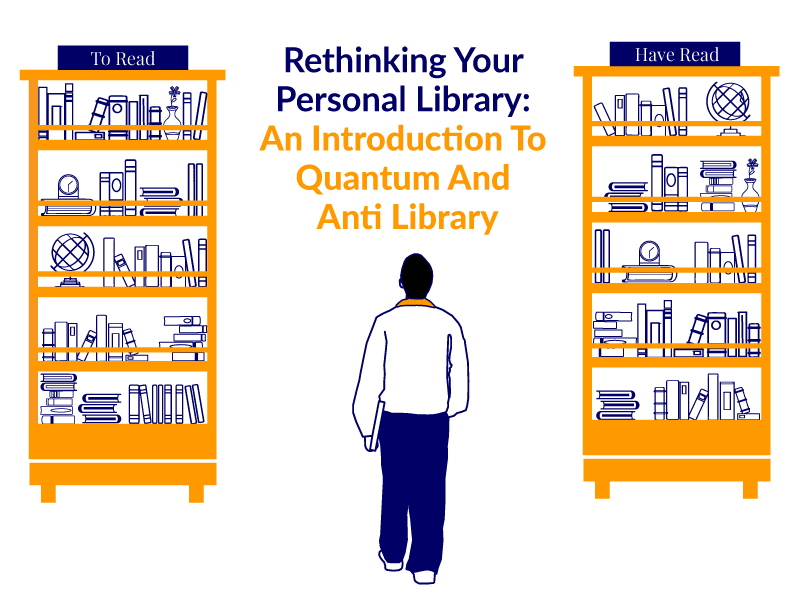

Check your inbox to confirm your subscription
We hate spam as much as you hate spoilers!